23 Jul2020
By Jerrica Thurman
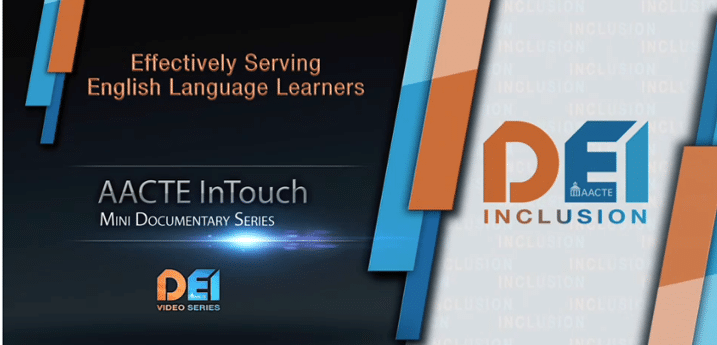
Ed Prep Matters features the “Revolutionizing Education” column to spotlight the many ways AACTE, member institutions, and partners are pioneering leading-edge research, models, strategies and programs that focus on the three core values outlined in the current AACTE strategic plan: Diversity, Equity, and Inclusion; Quality and Impact; and Inquiry and Innovation.
In this final installment of the first Diversity, Equity and Inclusion video series, AACTE members discuss the importance of preparing high quality teachers to educate the growing population of English language learners in the U.S. Statistics show English language learners currently represent 25% of the student body and are expected to grow to 50% within the next five years.
In “Effectively Serving English Language Learners,” Jacqueline Rodriguez, AACTE Vice President, Research, Policy and Advocacy said, “according to the U.S. Department of Education, we’ve seen dramatic increases in English language learners across the country. Some states have increases of over 40% since 2010.” “It’s very important now that we see how our population of students is changing, and what our teacher candidates are facing in the future,” said Cathleen Skinner, director of world languages for Oklahoma State Department of Education. “[We need] to ensure that we are providing our candidates with a kind of content to meet the needs of today’s diverse students, and to make sure that they are comfortable and have had experiences working with families and communities that differ from their own,” said Wanda Blanchett, dean of the graduate school of education at Rutgers University New Brunswick. “That means the teachers are going to have to develop relationships with people outside the educational community,” said Brian Williams, director of the Alonzo A. Crim Center for Urban Educational Excellence at Georgia State University.
Watch the full video.
View the complete first series of AACTE’s DEI videos on the Video Wall. Stay tuned for the second series of the DEI videos coming this fall. Help AACTE spread the word by sharing the videos with your social network!
20 Jul2020
By Ashley White and Jane E. West
In Part 1 of this Q&A feature, AACTE consultant Jane West, a former teacher with a doctorate in special education and 30 years of policy experience in the nation’s capital, and Holmes Program Alumna Ashley L. White, assistant professor at the University of Wisconsin and 2019-20 Joseph P. Kennedy Fellow, share their mentoring/mentee relationship and how it has evolved over time to address race.
Q: What is the nature of your mentoring relationship?
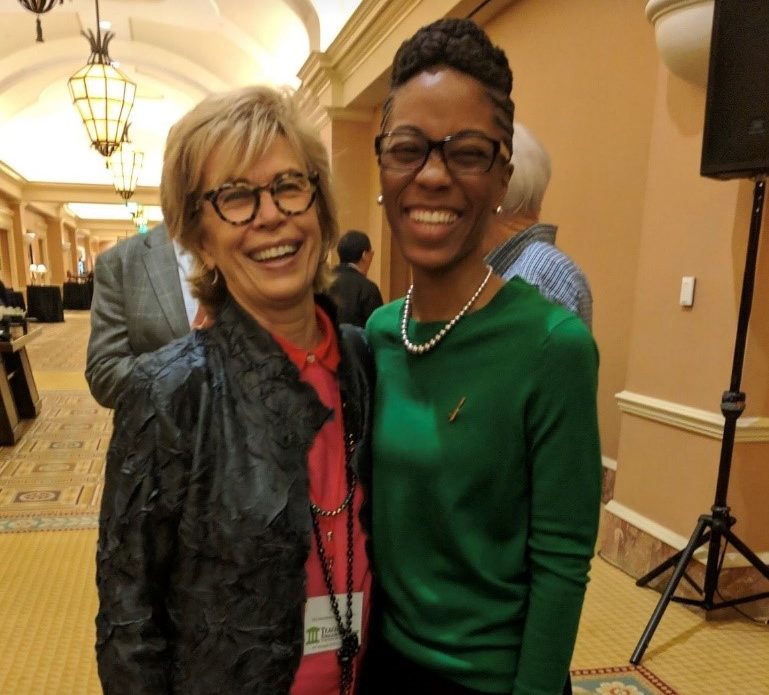 White: Through my doctoral work, I became very interested in disability policy. It was through this interest that I met Jane. Anyone who knows about SPED/disability policy knows Dr. Jane West. What I didn’t know before interacting with Jane is that, while she was an advocate for the interests of special education and students with disabilities, she was aware of the structural and ideological inconsistencies that float right beneath the surface of the equity rhetoric that dominates disability advocacy.
White: Through my doctoral work, I became very interested in disability policy. It was through this interest that I met Jane. Anyone who knows about SPED/disability policy knows Dr. Jane West. What I didn’t know before interacting with Jane is that, while she was an advocate for the interests of special education and students with disabilities, she was aware of the structural and ideological inconsistencies that float right beneath the surface of the equity rhetoric that dominates disability advocacy.
West: I had the good fortune to meet Ashley as a doctoral student through her work with The Higher Education Consortium for Special Education—an organization with which I consult. Ashley was keenly interested in advocacy and policy—my areas of focus—so we formed a natural alliance. I was, and am, pleased to mentor her in those areas as she navigated her doctoral work and her career.
16 Jul2020
By Katrina Norfleet
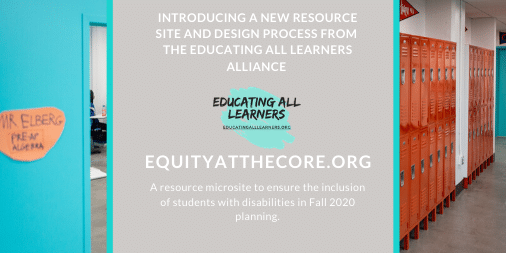
To support school leaders, teachers, students, and their families in coping with the changes brought by COVID-19, the Educating All Learners Alliance have worked with national experts and their 50-plus alliance partners, including AACTE, to develop a design process around nine critical questions to consider in reopening and recovery planning for fall 2020.
The equityatthecore.org microsite shares resources from partner organizations, hosts a discussion forum and outlines a design process to ensure that students with disabilities are not only a paragraph in the planning process but are at the center of the discussion about educating all learners to prioritize equity and inclusion.
AACTE members are encouraged to visit the site and explore this resource for administrators, teachers, and school communities. AACTE is proud to be a part of this uncommon alliance of organizations working with each other to support the recovery and reopening process.
16 Jul2020
By Ji Soo Song
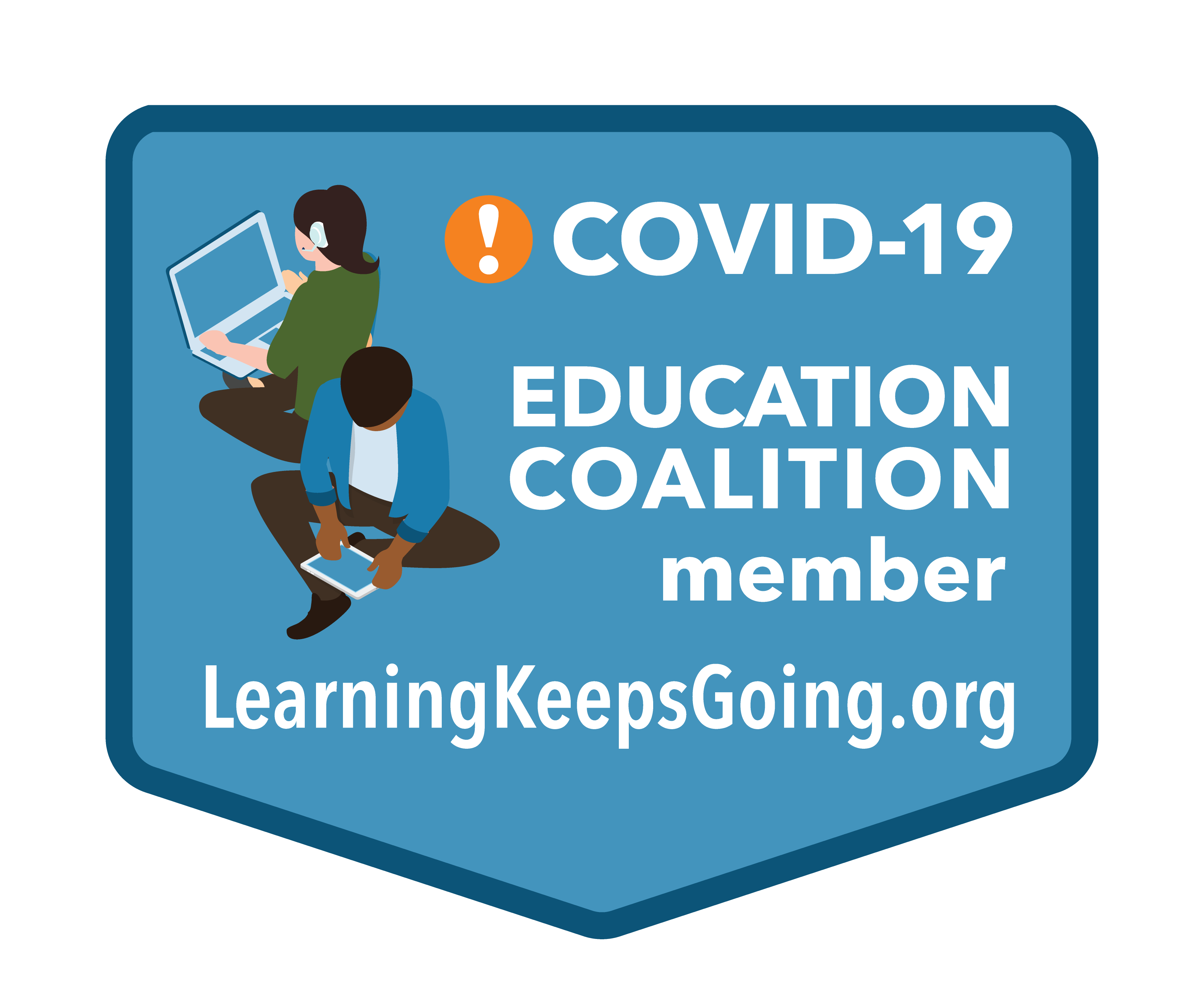
The undersigned members of the COVID-19 Education Coalition offer the following statement on the Coronavirus Child Care and Education Relief Act (CCCERA) and FY21 federal education appropriations:
As states and districts continue preparing for the upcoming school year, national data reveal the critical need to support educators’ capacity to deliver effective and equitable online learning experiences. For example, a recent survey revealed discrepancies in the quality of instruction available to students from higher-income versus low-income families. Although the CARES Act provided some federal dollars to support educator professional development, experts agree that the current education stabilization funds are inadequate to fully support schools, students, educators, and families through the COVID-19 global pandemic.
13 Jul2020
By Lynn M. Gangone
 We live in a society that is rapidly changing. The worldwide pandemic has shown us the harsh, but important, reality that divisiveness, inequality, and discrimination persist in our country. The murders of George Floyd, Ahmaud Arbery, Breonna Taylor, and too many others are stark evidence that racism still has deep and seemingly impenetrable roots in our country. This profound moment in time has brought despair to and heightened protest not only within the Black American community, but to people of all races throughout our country and the world. While addressing and rectifying these injustices requires the concerted effort of all American citizens, educators play an essential role in creating and ensuring an equitable existence for everyone.
We live in a society that is rapidly changing. The worldwide pandemic has shown us the harsh, but important, reality that divisiveness, inequality, and discrimination persist in our country. The murders of George Floyd, Ahmaud Arbery, Breonna Taylor, and too many others are stark evidence that racism still has deep and seemingly impenetrable roots in our country. This profound moment in time has brought despair to and heightened protest not only within the Black American community, but to people of all races throughout our country and the world. While addressing and rectifying these injustices requires the concerted effort of all American citizens, educators play an essential role in creating and ensuring an equitable existence for everyone.
Throughout our nation’s history, education has been pivotal in fostering citizenry. Abolitionist leaders understood the importance of a quality public education in promoting democracy. William Lloyd Garrison called for “a broader basis for government which includes all the people, with all their rights in their hands, and with an equal power to maintain their rights.” Wendell Phillips insisted that knowledge was given to impart upon others. Harriet Tubman instilled within us that “every great dream begins with a dreamer.” And Frederick Douglass wrote that “once you have learned to read, you will be forever free.”
10 Jul2020
AACTE DEI Video: A Focus on Recruiting and Retaining Black and Hispanic/Latino Male Teachers
By Jerrica Thurman
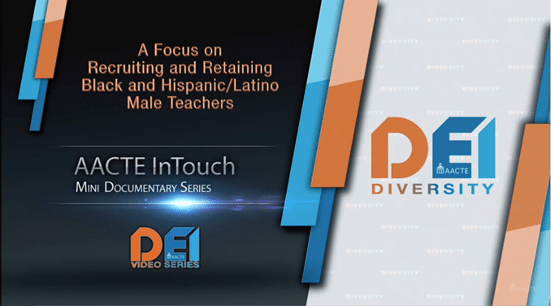
Ed Prep Matters features the “Revolutionizing Education” column to spotlight the many ways AACTE, member institutions, and partners are pioneering leading-edge research, models, strategies and programs that focus on the three core values outlined in the current AACTE strategic plan: Diversity, Equity, and Inclusion; Quality and Impact; and Inquiry and Innovation.
During this segment of the Diversity, Equity and Inclusion video series, AACTE members who participated in a 5-year study discuss their findings on ways to increase representation of men of color into the teaching profession. In “A Focus on Recruiting and Retaining Black and Hispanic/Latino Male Teachers,” researchers share the collective approaches campus-wide and across generations and disciplines required to effectively diversify the teacher pipeline.
02 Jul2020
By Jacqueline Rodriguez

In collaboration with national experts including AACTE, Phi Delta Kappa International (PDK) has released a Blueprint to Establishing a Place-Based Grow Your Own Program to support growth in the teaching profession. According to PDK, “Grow your own programs recruit students from their current high school population to enter educator pathway programs. Districts and states then partner with local educator preparation programs to offer enrollment incentives to students, keeping them close to home so that they will return as teachers to the classrooms where they currently learn.”
As our nation’s schools are increasingly diverse, our teaching workforce must reflect the communities in which they serve. This step-by-step Blueprint provides the context and the guiding principles to support local leaders who seek to grow their own teaching pool from within their diverse eco-system.
02 Jul2020
By Jacqueline E. King, Ph.D.
The AACTE Board of Directors recently created two new advisory committees to promote diversity in the educator workforce and among future leaders and scholars in educator preparation. These committees will be an integral part of fulfilling the strategic priority of diversity, equity, and inclusion outlined in AACTE’s strategic plan.
Advisory Committee on Educator Diversity
The purpose of this committee is to advise the AACTE staff and Board of Directors on current trends, issues, and programming needs related to advance diversity in educator preparation program faculty and candidates. The committee shall provide recommendations and feedback for program improvement that may pertain to the following:
26 Jun2020
By Rodney Robinson
This article originally appeared on Rodney Robinson’s blog and is reprinted with permission.
Yesterday, I woke up to a country and a city in crisis. I had text messages from former students who are now in their late 20’s looking for guidance and advice. Teachers who are close friends and some strangers have asked for my advice on what they should be doing. I did my best to calm their fears and try to help them channel their anger, anxiety, and aggression into a more impactful way but soon became overwhelmed at the sheer hopelessness of the situation. Like everyone, I’ve been sulking and processing the events of the past week.
Politicians, the media, and pundits love to use the term systemic racism to describe what is going on to generalize the problems of being black in America. While this is true, we must address the causes of systemic racism and not allow them to generalize and describe the system they are complicit in maintaining. We must push them to make systemic racism more than a buzzword. We must push them to define systemic racism and demand solutions that provide actionable change and implementation which most aren’t willing to do because they must sacrifice their comfort and position.
Peaceful protests and uprisings are not inspired just from the frustration of a lynched unarmed Black man. This is the frustration that comes from an inherently racist society that was built to subjugate Black people. According to Ta-Nehisi Coates, the “destruction is merely the superlative form of a dominion whose prerogatives include frisking, detainings, beatings, and humiliations.” It also comes from lack of safe, affordable neighborhoods, an education system that punishes black and brown boys and girls at rates 3-4 times higher than white kids, and a criminal system that stalks and preys on black bodies limiting their opportunities for physical and financial freedom.
25 Jun2020
By Leslie T. Fenwick

This essay is excerpted from Leslie T. Fenwick’s forthcoming book, Jim Crow’s Pink Slip: Public Policy and the Near-Decimation of Black School Leadership after Brown. The excerpt provides a brief history about how many public schools came to be named for confederates and racist politicians who fought against integration and illegally resisted the Brown decision.
In 1954, the Brown v. Board of Education legal decision proclaimed that segregation had no place in America’s public schools. With this new law of the land and ensuing federal pressure to desegregate, school districts in 17 dual system states complied by closing black schools and firing, demoting and dismissing legions of exceptionally credentialed black principals and teachers. At the time, closing black schools was the primary method for ridding the system of black principals and teachers most of whom were better credentialed than their white peers. Directly after Brown there was little displacement of black principals and teachers, but as Title VI compliance mandates increased, the National Education Association (NEA) received reports from black teachers’ associations indicating that displacements were increasing.
In late 1969, C. J. Duckworth who served as executive secretary to the Mississippi Teachers Association clarified the link between black school closures and black principal firing and demotions in 17 Mississippi school districts. In his report to the NEA, he wrote:
Alcorn County – the black high school reduced to a junior high school and the black principal demoted to a federal projects coordinators; Clarke County – the black high school reduced to a junior high school and the principal made an elementary principal for remainder of the year, after which he was to be terminated; Clay County – the black high school reduced to a junior high school with a white principal; ….Franklin County – a black elementary principal replaced by a white principal; Hancock County – the black high school phased out and only two of 10 black teachers remain; Harrison County – a black junior-senior high school eliminated and the black principal made supervisor of a material center;….Itawamba County – all black schools and principals eliminated; ….Prentiss County – black high schools and principals phased out; ….Marion County – black high school principals replaced with whites…. (p. 5332)
25 Jun2020
By AACTE

AACTE celebrates the recent rulings of the Supreme Court of the United States (SCOTUS) in support of the LGBTQ community and the Deferred Action for Childhood Arrivals (DACA) program. AACTE commends the two decisions and their significant impact for growing a diversified educator workforce prepared by AACTE member institutions to meet the needs of diverse learners.
For the first time in American schools, LGBTQ teachers will not fear the loss of employment when self-identifying thanks to the SCOTUS June 15 ruling. It affirms the 1964 Civil Rights Act protects gay, lesbian, and transgender employees from discrimination based on sex. AACTE believes representation of LGBTQ educators in schools is vital to the mental and physical health of LGBTQ students, particularly Black transgender youth. The SCOTUS decision will increase the visibility of gender diverse teachers on all levels of the education system and will help students gain a deeper understanding about the LGBTQ community.
22 Jun2020
By Lynn M. Gangone

This article originally appeared in eCampus News.
With the onset of coronavirus (COVID-19), school districts, institutions of higher education, and educators are finding themselves in uncharted territory. COVID-19 hit hard and fast. And with that, so did the shift from in-school instruction to online learning, which brought to light very complicated issues and inequities.
The onset of remote learning has magnified the disparity between students who have access to computers and internet and those who do not. The digital divide in our communities, particularly among children from underrepresented and low socioeconomic communities, raises questions that need to be answered.
What technologically based tools make a difference? What context is critical for successful introduction and integration of such tools? What scale of implementation might be possible?
22 Jun2020
By Jacob Easley II
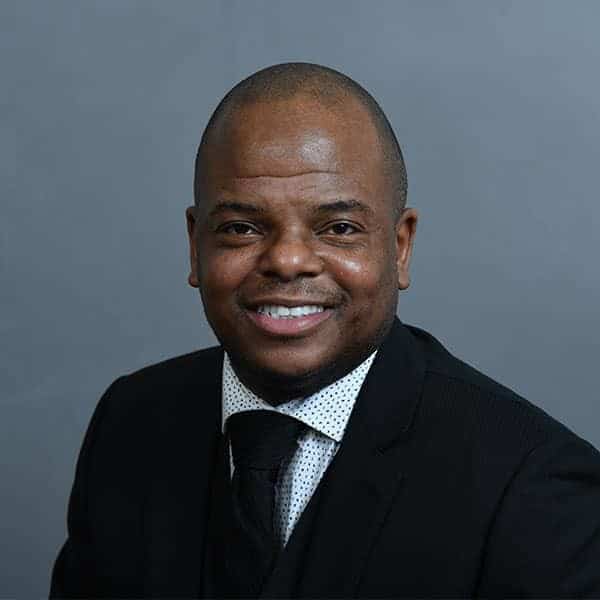 This article originally appeared on the Graduate School of Education at Touro College website and is reprinted with permission.
This article originally appeared on the Graduate School of Education at Touro College website and is reprinted with permission.
To the Touro GSE community, our candidates, and in particular, the youth and children we serve by way of our educator preparation programs, I write to you in solidarity with the many educators across the United States who collectively speak out against the horrific brutality and the death of George Floyd and many others. The world is watching. These are indeed troubling times coupled with the COVID-19 pandemic.
Our president of Touro College and University System, Dr. Alan Kadish has led the charge for those of us within the Touro academy to “Be part of the solution.” To our Black and brown youth, our first desire is your safety and to let you know you are valued. This too we hold dear for all communities of color. Yet, desires without actions are delusions. We must also move beyond rhetoric and engage the tools of professional educators. This we must and will continue to do as researchers, practitioners, and advocates focusing on educational equity.
18 Jun2020
By Chris Godwin
 The Executive Board of NCACTE grieves with the nation and joins in solidarity with our black brothers and sisters during this tragic period in our nation’s history. Systemic racism stole the lives of George Floyd, Rayshard Brooks, Ahmaud Arbery, Breonna Taylor, Eric Garner, Trayvon Martin, Michael Brown, and many more that are not named here. As teacher educators, we believe Black Lives Matter and we see the impact of racism in both our K-12 schools, colleges and universities. As a body, we agree students in our schools need and deserve antiracist teachers as well as teachers who are mirrors for themselves. This statement is our initial commitment to action, which will begin months and years of work ahead. We are also committed to finding the right people to lead this work for and with us.
The Executive Board of NCACTE grieves with the nation and joins in solidarity with our black brothers and sisters during this tragic period in our nation’s history. Systemic racism stole the lives of George Floyd, Rayshard Brooks, Ahmaud Arbery, Breonna Taylor, Eric Garner, Trayvon Martin, Michael Brown, and many more that are not named here. As teacher educators, we believe Black Lives Matter and we see the impact of racism in both our K-12 schools, colleges and universities. As a body, we agree students in our schools need and deserve antiracist teachers as well as teachers who are mirrors for themselves. This statement is our initial commitment to action, which will begin months and years of work ahead. We are also committed to finding the right people to lead this work for and with us.
Each moment defines us, and this moment calls us to stand up and call for justice. As Dr. Pamela Senegal, President of Piedmont Community College states, “The fact of the matter is this in the United States—race still matters far too much in nearly every aspect of living. Housing. Credit. Education. Prison. Jail. Health.”
18 Jun2020
By Andrew Daire
This article originally appeared on the School of Education at Virginia Commonwealth University website and is reprinted with permission.
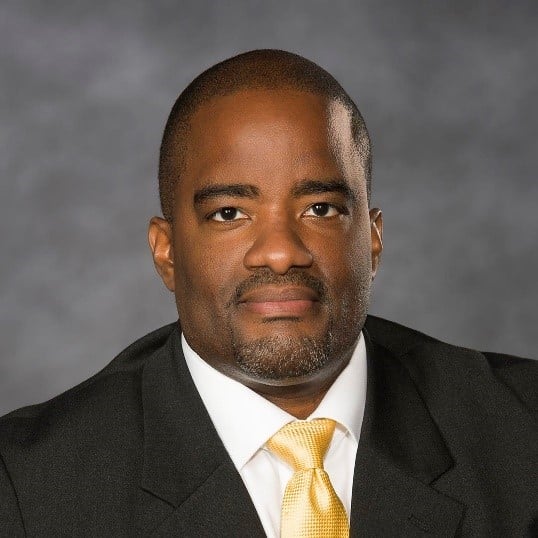 The VCU School of Education wishes to express our solidarity with the recent anti-racist protests and efforts to eradicate structural and systemic racism that began after the brutal murder of George Floyd in Minneapolis by police officers. His murder is not just a recent upsetting event, as so many other incidents come to mind: Amy Cooper in New York calling the police with false allegations regarding a black man; Ahmad Aubrey who was shot to death by Gregory and Travis McMichael; Breonna Taylor who was killed by police raiding her home; Eric Garner, and on and on and on. These incidents, and many more, are part of a pattern of ongoing, systemic, racist behavior against black people in this country since the beginning of slavery. Additionally, efforts to eradicate structural and systemic racism must continue. The grief that people of color are experiencing goes well beyond these recent events but is historical grief, exacerbated by these events.
The VCU School of Education wishes to express our solidarity with the recent anti-racist protests and efforts to eradicate structural and systemic racism that began after the brutal murder of George Floyd in Minneapolis by police officers. His murder is not just a recent upsetting event, as so many other incidents come to mind: Amy Cooper in New York calling the police with false allegations regarding a black man; Ahmad Aubrey who was shot to death by Gregory and Travis McMichael; Breonna Taylor who was killed by police raiding her home; Eric Garner, and on and on and on. These incidents, and many more, are part of a pattern of ongoing, systemic, racist behavior against black people in this country since the beginning of slavery. Additionally, efforts to eradicate structural and systemic racism must continue. The grief that people of color are experiencing goes well beyond these recent events but is historical grief, exacerbated by these events.
We will support this movement with not just words, but actions.








 White: Through my doctoral work, I became very interested in disability policy. It was through this interest that I met Jane. Anyone who knows about SPED/disability policy knows Dr. Jane West. What I didn’t know before interacting with Jane is that, while she was an advocate for the interests of special education and students with disabilities, she was aware of the structural and ideological inconsistencies that float right beneath the surface of the equity rhetoric that dominates disability advocacy.
White: Through my doctoral work, I became very interested in disability policy. It was through this interest that I met Jane. Anyone who knows about SPED/disability policy knows Dr. Jane West. What I didn’t know before interacting with Jane is that, while she was an advocate for the interests of special education and students with disabilities, she was aware of the structural and ideological inconsistencies that float right beneath the surface of the equity rhetoric that dominates disability advocacy. 

 We live in a society that is rapidly changing. The worldwide pandemic has shown us the harsh, but important, reality that divisiveness, inequality, and discrimination persist in our country. The murders of George Floyd, Ahmaud Arbery, Breonna Taylor, and too many others are stark evidence that racism still has deep and seemingly impenetrable roots in our country. This profound moment in time has brought despair to and heightened protest not only within the Black American community, but to people of all races throughout our country and the world. While addressing and rectifying these injustices requires the concerted effort of all American citizens, educators play an essential role in creating and ensuring an equitable existence for everyone.
We live in a society that is rapidly changing. The worldwide pandemic has shown us the harsh, but important, reality that divisiveness, inequality, and discrimination persist in our country. The murders of George Floyd, Ahmaud Arbery, Breonna Taylor, and too many others are stark evidence that racism still has deep and seemingly impenetrable roots in our country. This profound moment in time has brought despair to and heightened protest not only within the Black American community, but to people of all races throughout our country and the world. While addressing and rectifying these injustices requires the concerted effort of all American citizens, educators play an essential role in creating and ensuring an equitable existence for everyone.




 This article originally appeared on the Graduate School of Education at Touro College
This article originally appeared on the Graduate School of Education at Touro College  The Executive Board of NCACTE grieves with the nation and joins in solidarity with our black brothers and sisters during this tragic period in our nation’s history. Systemic racism stole the lives of George Floyd, Rayshard Brooks, Ahmaud Arbery, Breonna Taylor, Eric Garner, Trayvon Martin, Michael Brown, and many more that are not named here. As teacher educators, we believe Black Lives Matter and we see the impact of racism in both our K-12 schools, colleges and universities. As a body, we agree students in our schools need and deserve antiracist teachers as well as teachers who are mirrors for themselves. This statement is our initial commitment to action, which will begin months and years of work ahead. We are also committed to finding the right people to lead this work for and with us.
The Executive Board of NCACTE grieves with the nation and joins in solidarity with our black brothers and sisters during this tragic period in our nation’s history. Systemic racism stole the lives of George Floyd, Rayshard Brooks, Ahmaud Arbery, Breonna Taylor, Eric Garner, Trayvon Martin, Michael Brown, and many more that are not named here. As teacher educators, we believe Black Lives Matter and we see the impact of racism in both our K-12 schools, colleges and universities. As a body, we agree students in our schools need and deserve antiracist teachers as well as teachers who are mirrors for themselves. This statement is our initial commitment to action, which will begin months and years of work ahead. We are also committed to finding the right people to lead this work for and with us.  The VCU School of Education wishes to express our solidarity with the recent anti-racist protests and efforts to eradicate structural and systemic racism that began after the brutal murder of George Floyd in Minneapolis by police officers. His murder is not just a recent upsetting event, as so many other incidents come to mind: Amy Cooper in New York calling the police with false allegations regarding a black man; Ahmad Aubrey who was shot to death by Gregory and Travis McMichael; Breonna Taylor who was killed by police raiding her home; Eric Garner, and on and on and on. These incidents, and many more, are part of a pattern of ongoing, systemic, racist behavior against black people in this country since the beginning of slavery. Additionally, efforts to eradicate structural and systemic racism must continue. The grief that people of color are experiencing goes well beyond these recent events but is historical grief, exacerbated by these events.
The VCU School of Education wishes to express our solidarity with the recent anti-racist protests and efforts to eradicate structural and systemic racism that began after the brutal murder of George Floyd in Minneapolis by police officers. His murder is not just a recent upsetting event, as so many other incidents come to mind: Amy Cooper in New York calling the police with false allegations regarding a black man; Ahmad Aubrey who was shot to death by Gregory and Travis McMichael; Breonna Taylor who was killed by police raiding her home; Eric Garner, and on and on and on. These incidents, and many more, are part of a pattern of ongoing, systemic, racist behavior against black people in this country since the beginning of slavery. Additionally, efforts to eradicate structural and systemic racism must continue. The grief that people of color are experiencing goes well beyond these recent events but is historical grief, exacerbated by these events.